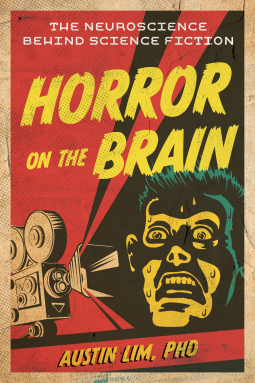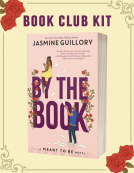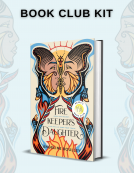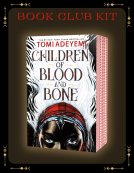
Horror on the Brain
The Neuroscience Behind Science Fiction
by Austin Lim
This title was previously available on NetGalley and is now archived.
Send NetGalley books directly to your Kindle or Kindle app
1
To read on a Kindle or Kindle app, please add kindle@netgalley.com as an approved email address to receive files in your Amazon account. Click here for step-by-step instructions.
2
Also find your Kindle email address within your Amazon account, and enter it here.
Pub Date Apr 08 2025 | Archive Date Apr 18 2025
The Globe Pequot Publishing Group, Inc. | Prometheus
Talking about this book? Use #HorrorontheBrain #NetGalley. More hashtag tips!
Description
Scientists throughout centuries have mined the depths of humanity looking for—and finding—answers to life’s most mysterious questions, but perhaps the most memorable accounts of hidden dimensions have been left to us by science fiction writers like Philip K. Dick and Octavia Butler. When science discovers, science fiction writers ask “what’s next?” Horror on the Brain reveals the real science and psychology behind science fiction’s most iconic characters, from Mary Shelley’s Dr. Frankenstein to the doctors of H.P. Lovecraft and even today’s horror blockbusters like Get Out and The Last of Us.
In this fascinating exploration of fear and madness, neuroscientist Dr. Austin Lim recounts psychology’s most bizarre and haunting real-life cases alongside famous speculative fiction that stretched that science to the edge. In 1924, Hans Berger invented the EEG, a commonly used brain imaging device, as a means to telepathically communicate with his sister, eerily similar to the protagonist in H.P. Lovecraft’s Beyond the Wall of Sleep, while Nobel Prize-winning research on marine animals in the 1960s reflects his tentacled creations. Phineas Gage, the 19th century man who experienced a dramatic personality shift following a traumatic brain injury, shares similarities to Robert Louis Stevenson's Dr. Jekyll. Investigate the neurological causes of schizophrenia and how characters in Sheridan Le Fanu’s story “In a Glass Darkly” manifest the diagnosis.
Neurological conditions from sleepwalking to the Cotard delusion—which leads patients to believe they are dead, even going to such extremes as burying themselves alive—have provided the basis for horror stories since their discovery, and, likewise, the wildly imaginative minds of writers have even prompted scientific research. Horror on the Brain uses illuminating analogies to connect science fact and science fiction, showing how spooky stories contain insights into the dark corners of the human mind and why we can’t stop looking into the abyss.
Available Editions
| EDITION | Other Format |
| ISBN | 9781493084784 |
| PRICE | $24.95 (USD) |
| PAGES | 328 |
Available on NetGalley
Average rating from 16 members
Readers who liked this book also liked:
We Are Bookish
Literary Fiction, Multicultural Interest, Women's Fiction
We Are Bookish
Historical Fiction, Mystery & Thrillers, Teens & YA
We Are Bookish
Arts & Photography, Health, Mind & Body, OwnVoices
We Are Bookish
General Fiction (Adult), Romance, Women's Fiction
We Are Bookish
Mystery & Thrillers, OwnVoices, Teens & YA
Silvia Moreno-Garcia
Historical Fiction, Literary Fiction, Sci Fi & Fantasy
We Are Bookish
Sci Fi & Fantasy, Teens & YA
We Are Bookish
General Fiction (Adult), New Adult, Romance


















